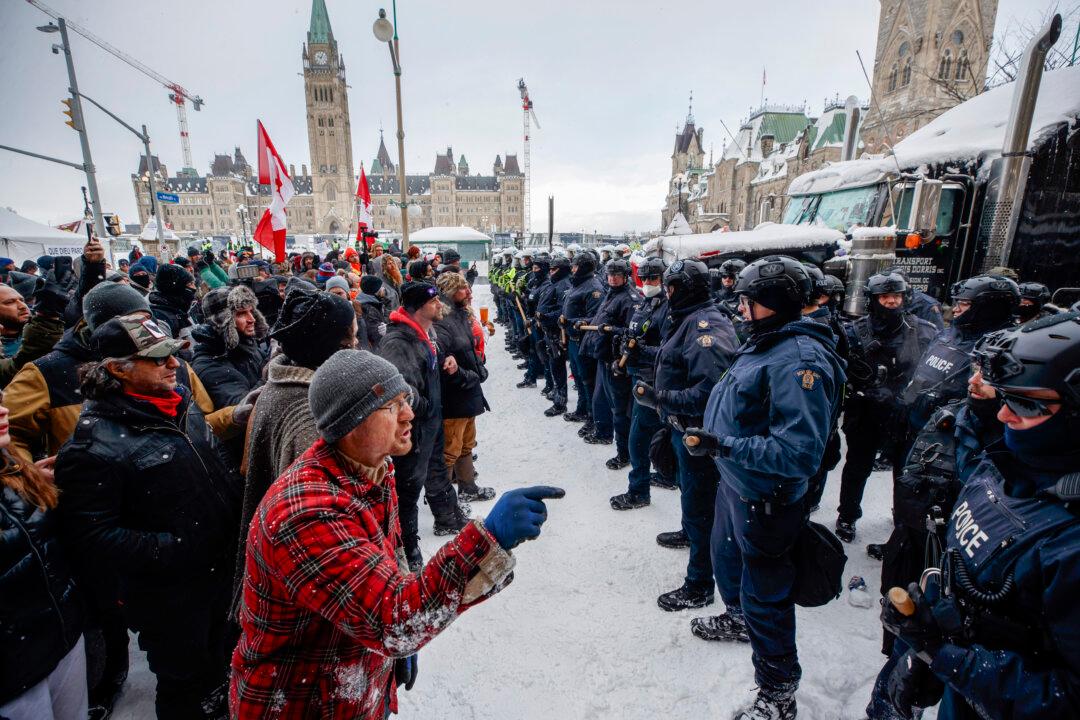Government lawyers argued in court that two “fundamental errors” were made when a judge determined the invocation of the Emergencies Act in response to the 2022 Freedom Convoy protest was unjustified.
The Federal Court of Appeal in Toronto began a two-day hearing on Feb. 4 on the Liberal government’s appeal of a 2024 decision by Justice Richard Mosley.





